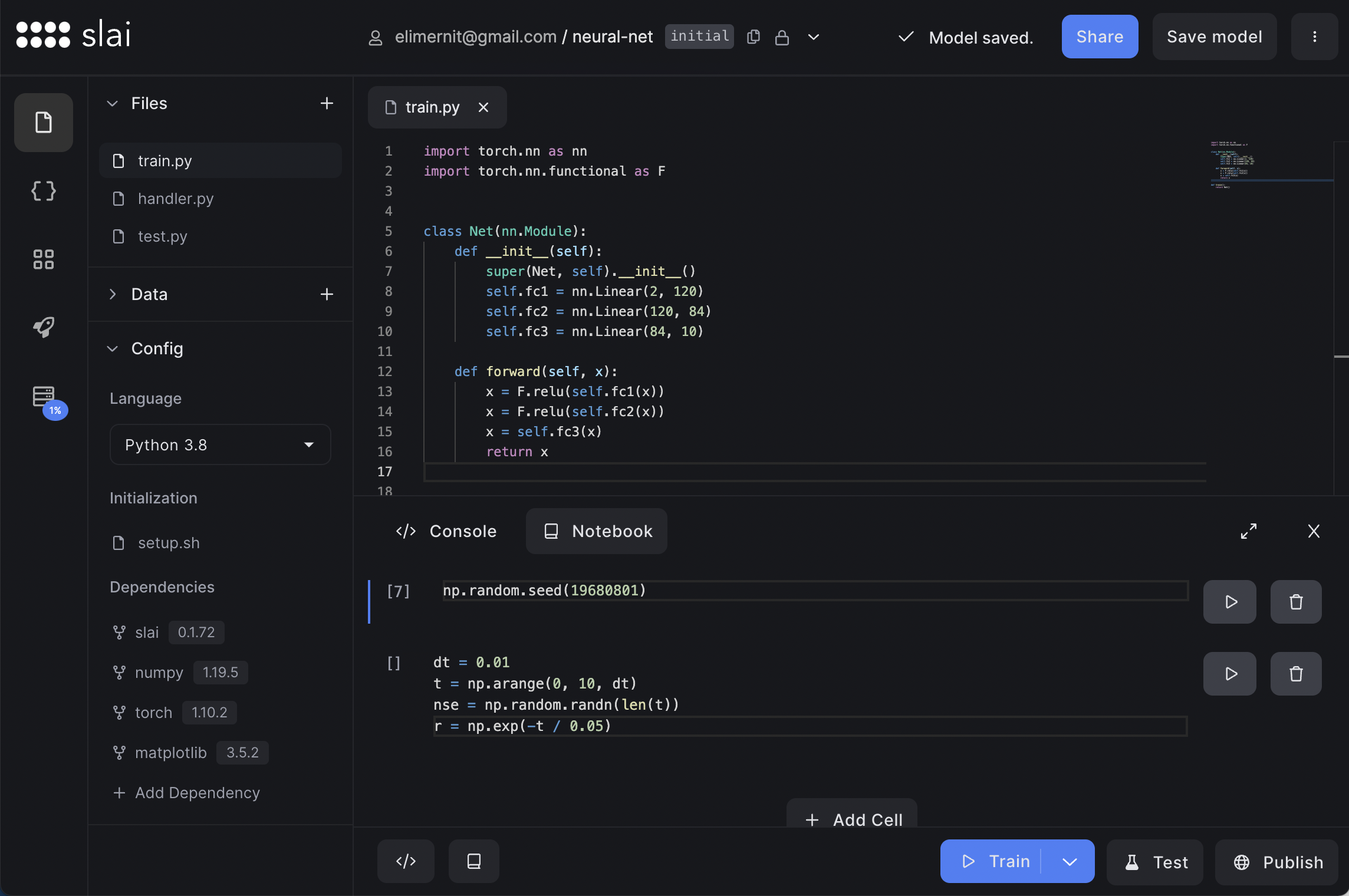In a world where Twilio exists, you wouldn’t dream of standing up your own SMS messaging stack across 193 countries and god-knows how many telcom operators. The situation for machine learning (ML) isn’t entirely dissimilar; unless ML is core to your software — and it probably isn’t — why would you waste time on assembling an entire infrastructure. To solve that precise issue, Slai is building a developer-first platform for machine learning. It equips developers with the tools to quickly ship machine-learning applications.
“Today, machine learning remains a research discipline, and it’s still very hard for a developer to build their own machine learning application,” shares Eli Mernit, co-founder and CEO at Slai. “Our hope is that developers are empowered to build state-of-the-art machine learning models.”
The company today announced it raised a $3.5 million seed round led by Tiger Global, with additional investment from Y Combinator, Charge Ventures, Uncorrelated Ventures, Twenty Two Ventures and Soma Capital, along with angels including Guy Podjarny and Jason Warner.
The company’s product is focused on letting developers focus on the machine learning models, rather than on all the surrounding kerfuffle that takes up a lot of time, but doesn’t directly contribute to the application itself.

Screenshot of Slai.ai in action. Image credit: Slai.
“The product lets you connect a data source. That could be your database or an S3 bucket with data that you want to send to a machine learning model. And then the machine learning model — just some Python code — finds predictions in the data. We’ve wrapped that in an API, that does things like validation on the input that the user passes in, or does some processing on the output before it’s sent back to the user,” explains Mernit. “Those components constitute a machine learning application. And so typically, if someone was doing this stuff by hand, they would have to set up a web server themself. They would have to set up some versioning system, they would have to set up some way of monitoring the model. And all of this amounts to a lot of busywork. We do all that for the user. All they have to focus on is where their data is coming from and what type of model are they using. The rest is handled for them. In a nutshell, we eliminate all the glue that goes into the machine learning development process.”
The platform thinks of itself as GitHub for ML — and makes it easy to fork existing recipes for machine learning for use in applications.

